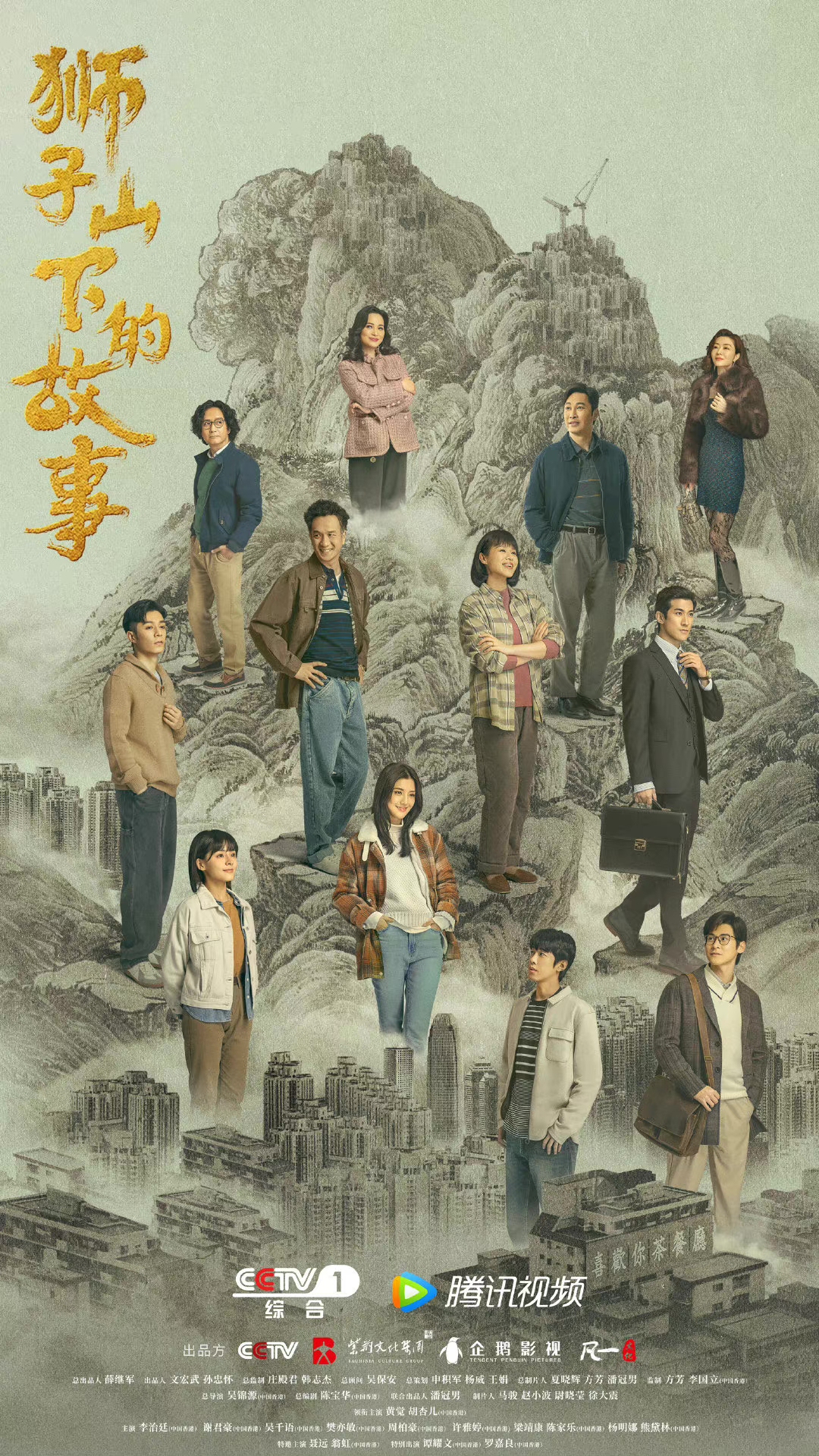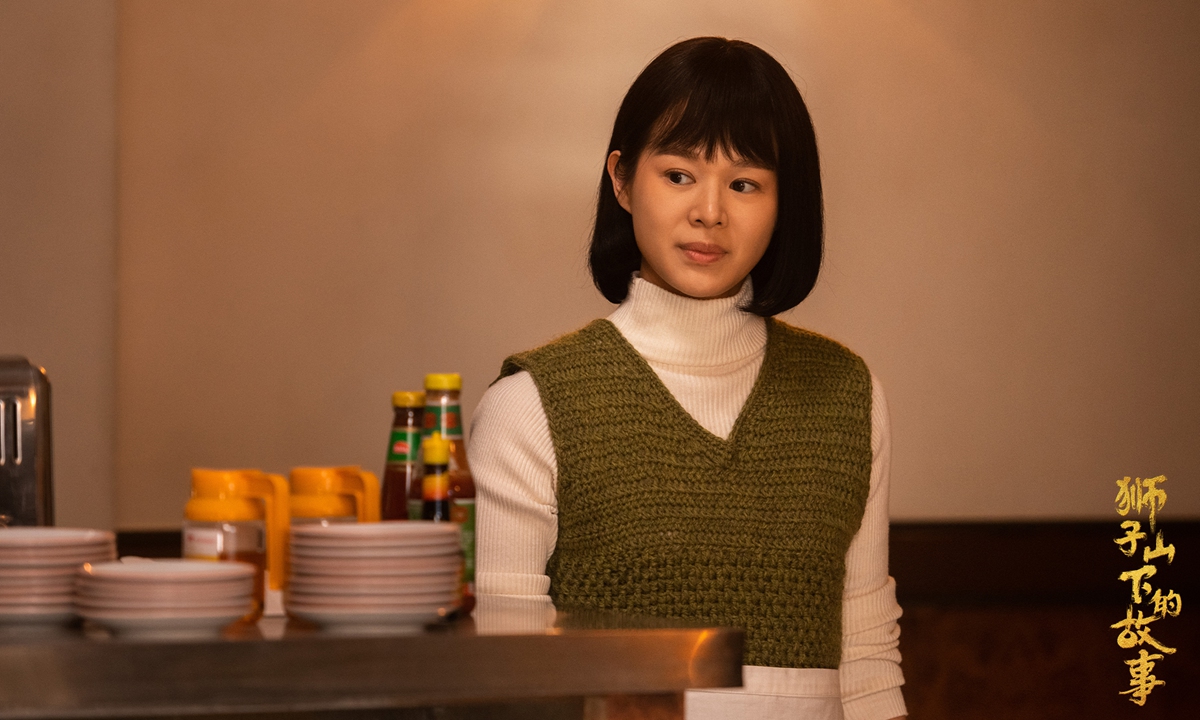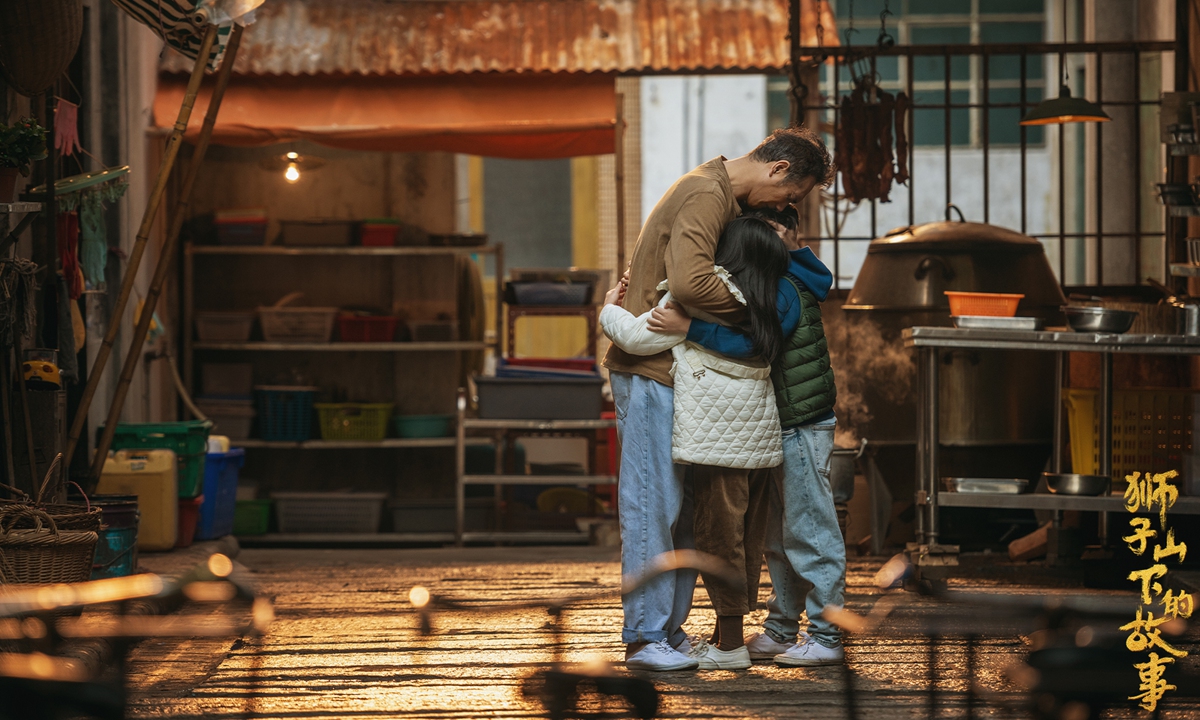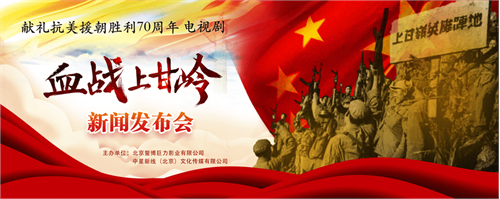ARTS / TV
New TV series marks 25th anniversary of Hong Kong’s return to China
The Spirit of Lion Rock

Promotional material for The Stories of Lion Rock Spirit Photo: Courtesy of the TV series

Promotional material for The Stories of Lion Rock Spirit Photo: Courtesy of the TV series

Promotional material for The Stories of Lion Rock Spirit Photo: Courtesy of the TV series
"In life it is often rough and it is hard not to have any worries. Given that we are on the same boat, we can all help each other beneath the Lion Rock and leave our differences behind."This is a line from the widely-known 1979 song "Below the Lion Rock" by Roman Tam. The song has been seen as representing the spirit of the Hong Kong people and so the "Lion Rock Spirit" is often used to refer to Hong Kong as a whole.
To commemorate the 25th anniversary of Hong Kong's return to the motherland, a new TV series showing the "Lion Rock Spirit" debuted in the Chinese mainland on Sunday. The series, which is aired on the streaming giant Tencent Video, is scheduled to debut in Hong Kong on Monday.
The series, The Stories of Lion Rock Spirit, is produced by Bauhinia Culture Holdings Limited from Hong Kong and Tencent Penguin Pictures from the mainland, and involved experienced TV program producers like director Ng Gam-yuen, actor Huang Jue and actress Myolie Wu.
"Hong Kong's return to the motherland is the wish of all the Chinese people and represents the end of a period of humiliation, but we will not forget it," Ng told the Global Times, adding that the series follows a group of ordinary Hong Kong residents and examines the changes in the city by narrating their stories.
Cafe life
The core setting of the 27-episode series is a Hong Kong-style cafe, a type of restaurant that offers an eclectic and affordable menu that includes Chinese and Western-style dishes.
The story begins in 1984 with a bustling tea restaurant serving mouth-watering roast goose and signature Hong Kong snacks such as rocky buns with butter and milk tea.
The cafe witnesses the changes in Hong Kong from the perspective of daily life. It experiences the happiness and sorrow of Hong Kong people and is closely related to life. The restaurant also represents the culture of Hong Kong, just like the city's milk tea blended with coffee.
The director said that tea restaurants are part of Hongkongers' lives, so he chose it as a window to observe the local society.
It is through this restaurant that the main characters experience the return of Hong Kong to China, Beijing's successful bid for the 2008 Olympic Games, the SARS pandemic and the global financial tsunami.
After the return, the "Pearl of the Orient" becomes prosperous and stable, integrates into the Greater Bay Area and then sets out again.
Ng said that Beijing's successful bid for the Olympic Games in 2008 impressed him, as a Chinese he felt very proud. The great event also impressed Wu, especially the opening ceremony, which left her stunned for a long while, she told the Global Times.
Huang plays the restaurant's chef, while Wu plays the wife of the restaurant's owner. The two of them represent two different groups living in Hong Kong, one local and the other an migrant from the mainland, but what is the same is their striving spirit, which is the "Spirit of Lion Rock."
Ng said that he included people in different professions in the series, including policemen, teachers and chefs, most of whom are ordinary people, to show the confusion, toughness, kindness and commitment of Hong Kong people at different points in time over the decades.
Celebrating the return
So far, 13 episodes have been released in the mainland.
Many reviews from audiences praised how the series restores Hong Kong at various different times, awaking their memories about the city.
To immerse herself in her role, Wu visited many Hong Kong-style cafes before the series began to collect material and observe people interacting with each other.
The series was shot on the streets in Foshan, South China's Guangdong Province, but through after production and computer effects, Hong Kong's Central Wan and Sheung Wan come alive, completely restoring Hong Kong in the 1980s and presenting scenes from 40 years ago, Wu noted.
To celebrate Hong Kong's return, local residents also have leapt into action. Jacky Ko, a key opinion leader who runs a multimedia production studio in Hong Kong, told the Global Times that they have recorded an original song for the anniversary.
Residents born in the 1970s, 1980s and 1990s reveal their inner thoughts in the song, celebrating Hong Kong's return and supporting the "one country, two systems" principle, Ko noted.




